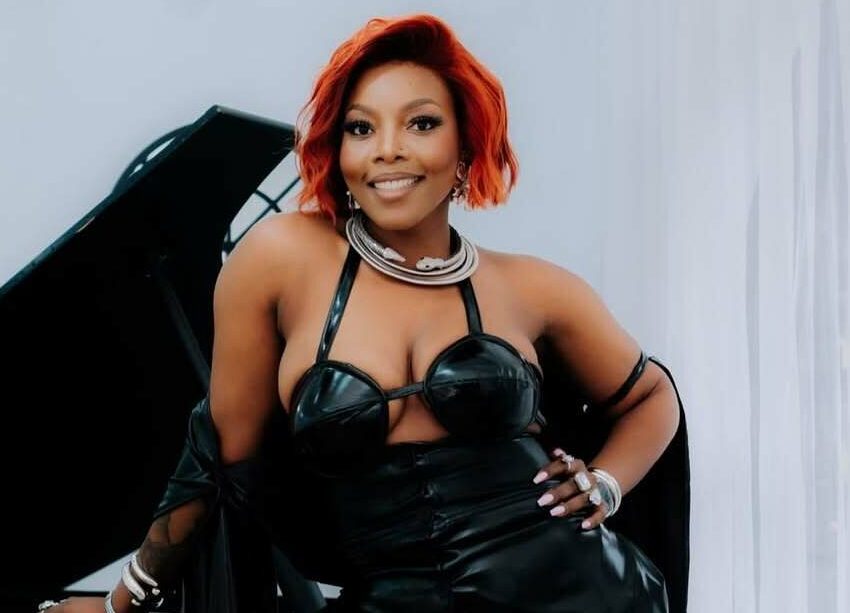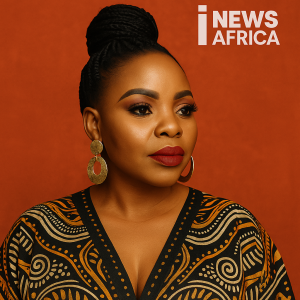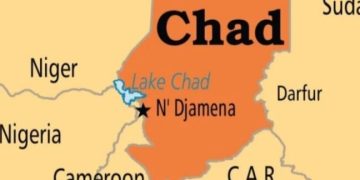Nomcebo Zikode: The Voice of a Continent, Silenced by Industry Greed

Nomcebo Zikode
By Dr. Michael O. Omoruyi
When Jerusalema swept the globe in the darkest months of the COVID-19 pandemic, it wasn’t just a hit song—it was a heartbeat. A rhythmic balm for a weary world. But behind the viral dance challenges and global acclaim lies a sobering truth: the very voice that carried Africa’s hope to the world, Nomcebo Zikode, has had to fight to be heard—not in melody, but in equity.

Born in Hammarsdale, KwaZulu-Natal, Nomcebo wasn’t handed stardom. She built it—one backing vocal, one church choir, one broken door at a time. For years, her voice adorned the music of South Africa’s most celebrated acts. Yet it was in 2019, on a beat crafted by Master KG, that her voice ascended into global consciousness. Jerusalema was more than a song; it was an African anthem of spiritual longing, resilience, and unity. It spoke in isiZulu but sang to all of humanity.
So why was the woman behind this phenomenon denied her rightful due?
In July 2021, Nomcebo made headlines—not for a new release, but for a revelation. She hadn’t received a cent in royalties from Jerusalema. That’s not just artistic injustice; it’s cultural theft. When the world profits off African talent, only to silence or shortchange it behind the scenes, we must call it what it is: exploitation dressed in digital applause.
This isn’t a solitary case. It is symptomatic of a wider rot in the global music industry—particularly where African women are concerned. For every chart-topper, there are hundreds of African creatives whose work is streamed, sold, and celebrated while they remain shadows behind the spotlight.
Yet Nomcebo did not shrink. She released her debut album Xola Moya Wam, which went platinum. She toured, inspired, and anchored herself as a solo powerhouse. She became not only a voice—but a symbol. A symbol that African artists must not just sing louder—they must own their work, know their rights, and fight for their share.
It is time we reframe success in Africa’s creative economy. Not just by who tops the charts, but by who owns their masters. Not just by who goes viral, but by who gets paid. For too long, African creativity has been the world’s treasure and the continent’s tragedy.
Nomcebo Zikode, like Miriam Makeba before her, reminds us: true artistry is not just in the voice—it’s in the courage to use it.
Dr. Michael O. Omoruyi writes from New York City. He is the author of From Grit to Grace: A Memoir of Roots, Resilience, and Reinvention, and Publisher of iNewsAfrica.
Leave a reply Cancel reply
Popular Categories
- Mauritania 1
- Guinea-Bissau 1
- Culture 1
- Trade 1
- Ivory Coast 1
- ICJ 1
- Somali 1
- Europe 1
- United Nations 1
- Israel 1
- Nepal 1
- Thailand 1
- Zimbabwe 1
- West Africa 1
- Brazil 1
- Finland 1
- Colombia 1
- Travel 1
- Automobile 1
- Myanmar 1
- Entertainment 1
- Mozambique 1
- Morocco 1
- Space 1
- UNDP 1
- Global Diplomacy 1
- Vatican City 1
- Book & Arts Spotlight 1
- ECCAS 1
- senegal 1
- The Hague 1
- Vietnam 1
- Gambia 1
- Tunisia 1
- Wildlife 1
- Togo 1
- Celebration 1
- Interview 1
- BRICS 1
- Democracy 1
- Defense 1
- Gabon 1
- Pakistan 1
- Weather 1
- Terrorism 1
- Algeria 2
- Economy 2
- Church 2
- Energy 2
- New York City 2
- Science 2
- Somalia 2
- Zambia 2
- Rome 2
- Angola 2
- World Bank 2
- Middle East 2
- Benin Republic 2
- Cameroon 2
- London 2
- Education 2
- Sierra Leone 2
- Business 2
- Chad 2
- Caribbean 2
- Ukraine 2
- Ukraine 2
- Haiti 2
- Guinea 2
- India 3
- Russia 3
- South Sudan 3
- Uganda 3
- Crime 3
- Namibia 3
- Music 3
- Ethiopia 3
- Transportation 3
- Rwanda 3
- Tanzania 3
- Congo 3
- Lesotho 3
- Aviation 3
- France 3
- Liberia 4
- Health 4
- Libya 5
- Egypt 5
- UN 5
- UK 5
- ECOWAS 5
- Mali 7
- China 7
- Niger 8
- Editorial 8
- Sudan 9
- Burkina Faso 10
- Politics 10
- Tech 12
- Technology and Business 13
- Ghana 13
- DR Congo 15
- World 15
- Sports 17
- Kenya 17
- Opinion 18
- People 22
- South Africa 28
- US 44
- OP-ED 57
- Africa 81
- Nigeria 151

Email: [email protected]










